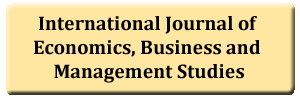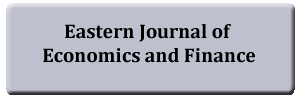Poverty as a Factor in Human Trafficking in Rwanda
DOI:
https://doi.org/10.20448/801.41.188.201Keywords:
Poverty, Human trafficking, Income dispariries, Lack of equal opportunity, Weak governance, Armed conflict, Underdevelopment, Rural-migration.Abstract
Poverty is a world wide phenomenon and is believed to be the main cause of human trafficking and Rwanda is no exception. Households below the poverty line are prone to human trafficking. The aim of this study is to investigate the relationship between poverty and human trafficking. Quantitative approach was adopted. The target population of the study was 200 and the sample size is133 respondents. Stratified random sampling technique was used to select the participants. Simple random sampling was used in each stratum to get a representative sample. A questionnaire was used to collect primary data. Statistical Package for Social Sciences (SPSS) Version 21 for windows was used as to analyze quantitative data. The findings indicated that R=0.744 and R-Square = 0.553 which is a strong relationship between the independent variables and the dependent variable. The significance of the F-statistic is 0.000 which is less than 0.05. This implies that null hypothesis is rejected and conclude that there is a relationship between poverty and human trafficking. The proposed model shows that poverty (Beta = 0.584) was the most important in influencing human trafficking. Thus, Beta at 0.584 is statistically significant and y intercept is at 0.657 where P value 0.000 is less than 0.05 . The model is given as ,Y=0.584 X+0.657. Orphans and single mothers are the ones who fall below the poverty line. To overcome poverty export diversification and expanding manufacturing sector is of paramount importance.




